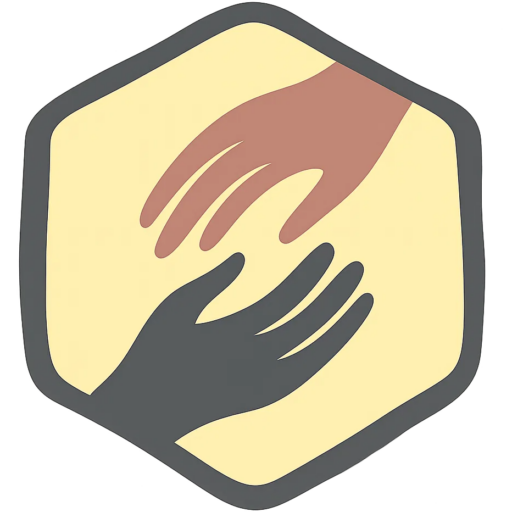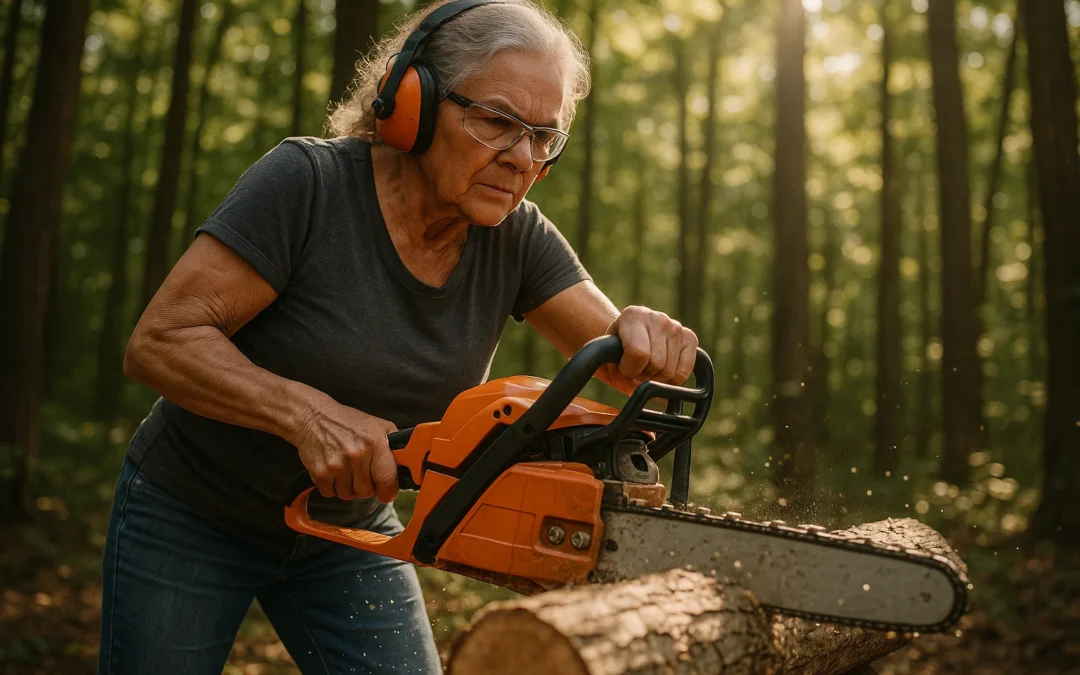Finding Strength in the Struggle
It’s a curious mix, isn’t it—compassion and admiration? We often feel sympathy for someone we see struggling yet we admire them at the same time. Have you ever felt that way?
Recently I came across the story of a woman, age 74, who purchased 12 acres of wooded land in North Carolina. Picture this: a mature woman, surrounded by trees, walking 12,000 steps a day, and yes—using a chainsaw to cut wood. Feel that image for a moment. How would you feel waking up to that kind of day?
The story was a post on Reddit. One person responded with this:
“Sadly, my pain has left me bedridden 95% of the time. I do not enjoy life at all. I wish you well. I hope you enjoy every breath you take.”
That comment got 110 upvotes in just five days. Many others chimed in too. One of those responses read simply:
“(((Gentle hugs)))”
…and that one got 51 upvotes. Others wrote:
“I’m so sorry to hear that. Prayers! 🙏🏻🙏🏻”
“I would wish this for anyone I love. Quality of life is so important and so difficult to lose it. God bless you.”
“Prayers for you, friend.”
The bedridden commenter—“bendndad”—then replied personally to nearly everyone: “Thank you so much. Believe it or not, the positive comments help to redirect the pain.”
He Admits His Pain
Pause with me here. Here is a man who is confined to his bed nearly all the time; he suffers pain, and he admits: he does not enjoy life at all. Yet he takes the time to reach out, to wish someone else well, someone who is physically active and strong. Doesn’t that strike you as something powerful? In his own suffering, he rises above his immediate pain, sees someone else’s joy—and wishes them well.
What do you do when you see someone thriving in a way you aren’t? Do you feel envy, resentment—or something else entirely?
The Power of Shared Humanity
In this case, the active woman’s story sparked a whole discussion. It began with one simple post about enjoying life, walking in the woods, using a chainsaw—not your everyday retirement plan. And then the empathy and positive responses cascaded. It’s uplifting to see.
But look at the bedridden man. It seems when people see someone shining—despite circumstances—they feel invited in. They respond with sympathy and with joy for that person. The bedridden man, in a sense, “conquered” his suffering—not by denying it—but by refusing to be swallowed by it. He looked beyond himself to someone else’s journey and shared in it.
From Despair to Purpose
I once wrote to a young woman—let’s call her Delila—who had been left disabled for life after an accident in Mississippi. She and I exchanged letters and enjoyed a friendship by mail. It faded over time; life shifted, the miles (12 hours of driving!) mattered; the commitment waned. I wonder now: Did she find a way to cope? Did friends drop away one by one? I feel sad for her—because her cross was heavy. Some people carry more than their share of crosses.
On the other hand, some people rise above. They go from “just coping” to mission. They turn hardship into meaning. One clear example is Joni Eareckson Tada—a young woman who, because of a swimming accident, became paralyzed from the neck down.
In her autobiography, she writes of lying immobilized, fighting depression, wishing she’d died in the accident. That moment—the pond, the dive, the wrong depth—rocked her world. Yet she found a way through. She drew closer to God. She found community. She found purpose. She learned to paint with her teeth, a remarkable metaphor for “finding a way when the usual hands are gone.”
That’s a story with scars—but also with wings. Because Joni didn’t stop at surviving—she became an artist, an author, an advocate, a speaker. Her life reminds us that our worst moments do not have to define us; sometimes they refine us. Her book is titled Joni: An Unforgettable Story.
Turning Pain Into Purpose
Here’s a quick overview of how Joni has encouraged others and made ripples in our society:
- She founded the organization Joni and Friends International Disability Center, which supports people with disabilities around the world.
- She has delivered speeches, written or co-authored more than sixty books, created art, appeared in media, and used her life to encourage those who feel forgotten.
- She’s been quoted saying suffering does matter—and that pain and purpose can meet.
In other words—heroes like Joni are essential in our society. They remind us what our spirit is capable of when the body fails. They shine a light into dark corners of pain and confusion. We need these kinds of people—to inspire us, to challenge us to kindness, to push us to empathy, and to show us paths we might not see ourselves.
The 74-Year-Old Woman With a Chainsaw
And that brings me back to the 74-year-old woman in the woods. She’s not famous. She’s not trying to be. But she’s living full. She’s chopping wood, walking steps, embracing what many would call retirement. And the bedridden man: he admits his suffering but passes along his joy to others in their healthy lives. In some mysterious way, the sufferings of Joni and the bedridden man have acted as a catapult to increase the power of their message to others tenfold. 🌳💪✨
——
Check out our guide, “Five Reasons to Feel Good about Aging,” as well as free and paid-for reading material at our Help My Senior website.
Did you enjoy this article? Why not share it among your friends with the below buttons? Thank you.

